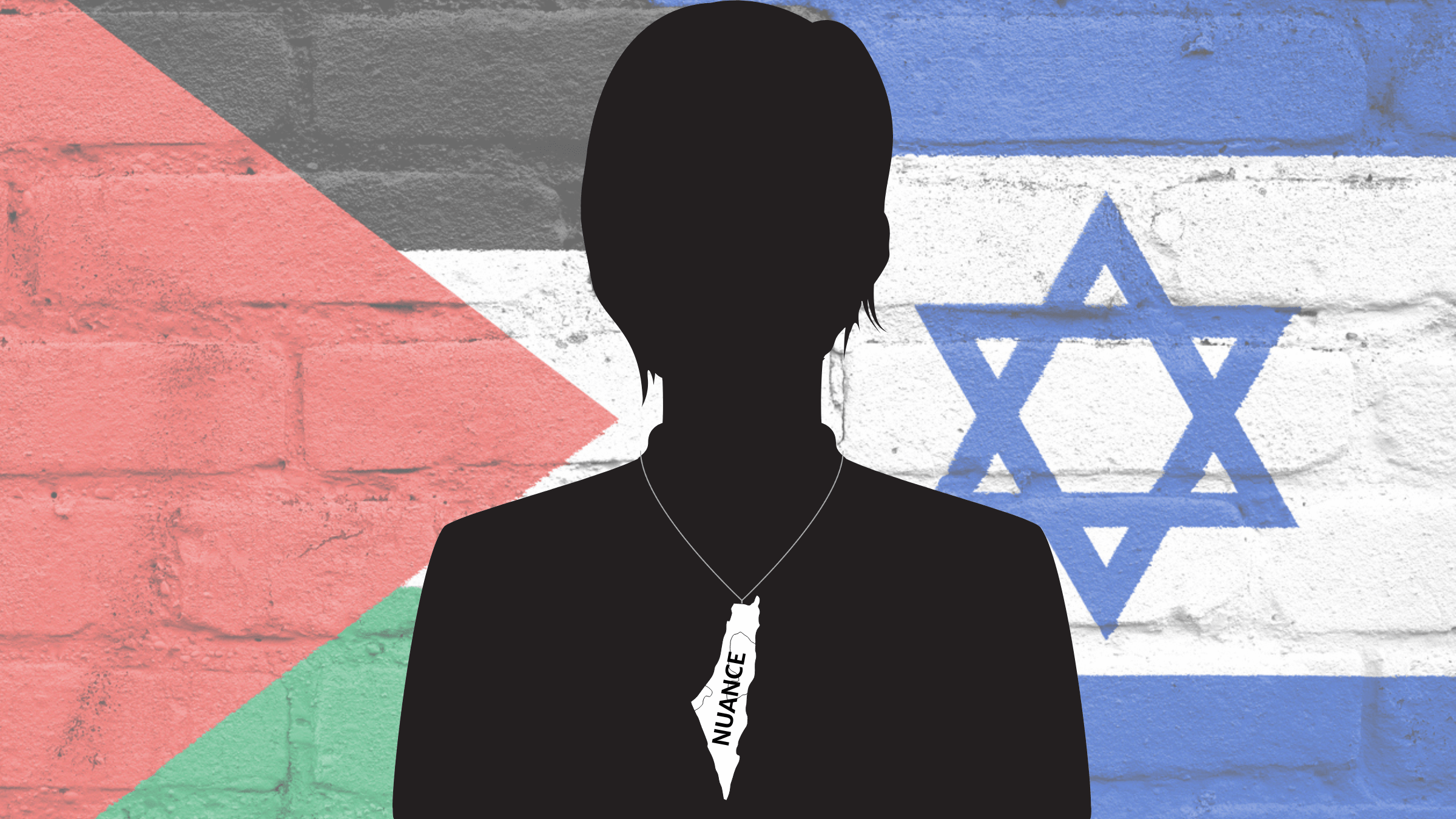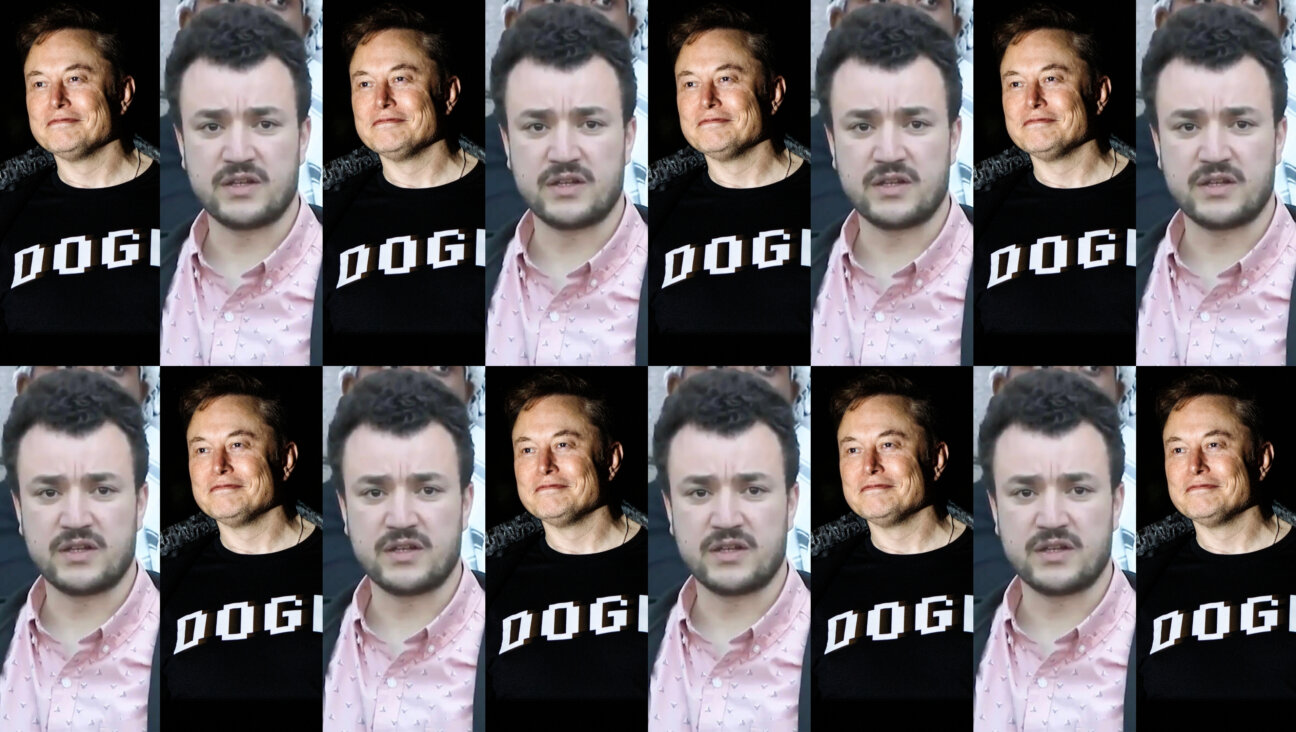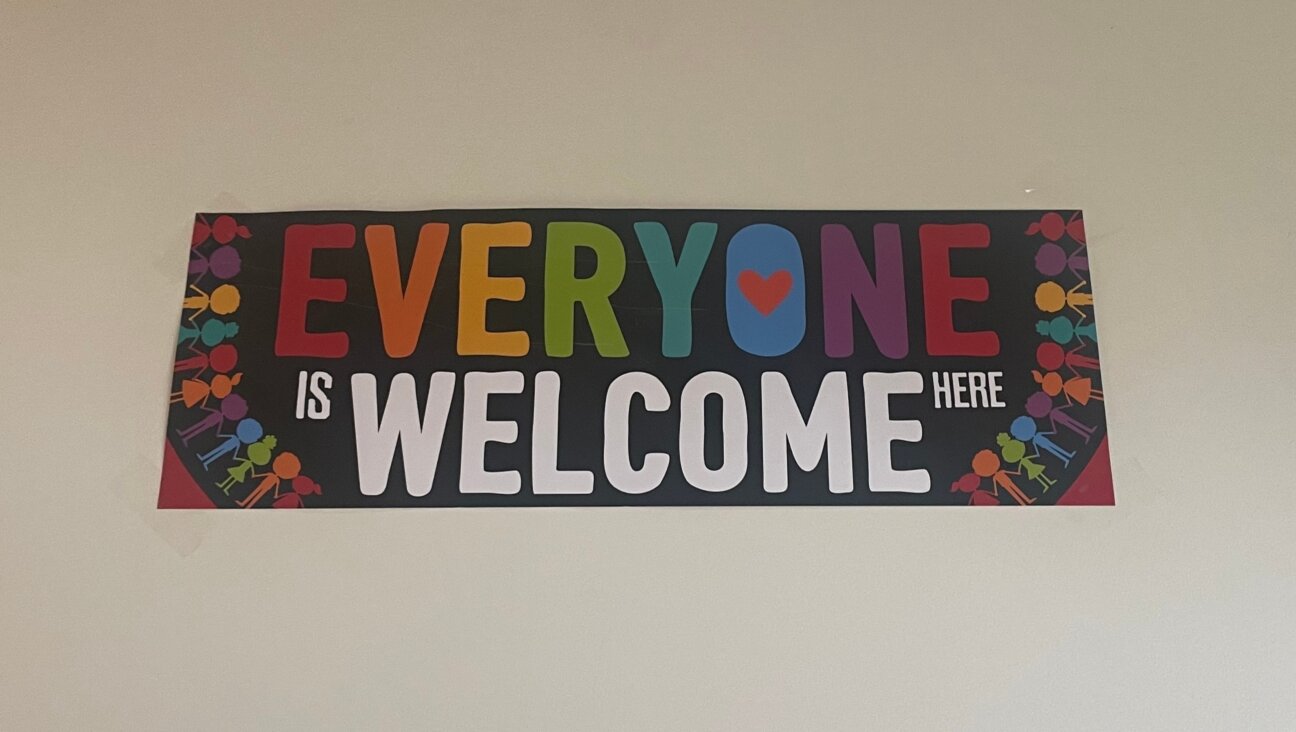The Hebrew word we need right now doesn’t seem to exist
‘Kneytsh,’ the Yiddish word for ‘nuance,’ is the key ingredient currently missing from our conversations on the war

“I’ve been thinking a lot about nuance because it’s missing from so many public conversations about the war.” Graphic by Odeya Rosenband
In klezmer music, according to one website, the word is used to describe “the sound of a voice catching as it sobs.” It can also mean the particular fold in the black hats some Orthodox men wear that indicates which rabbi they follow. The Yiddish critic Shloyme Bikl used it to describe the Yiddish poet Abraham Reisin’s “brand of humor,” irony and cleverness.
Kneytsh (קנײטש), pronounced to rhyme with the English letter h, is Yiddish for “nuance.”
As in, subtle differences that can only be discerned with careful attention but often have great meaning. As in, the hallmark of excellent journalism that helps people navigate our complicated world. As in, a key ingredient in understanding — and ending — all the horrible things happening in Gaza and Israel right now.
I’ve been thinking a lot about nuance because it’s missing from so many public conversations about the war. Accusations of genocide and “settler colonialism” against Israel lack not only nuance but any sense of history. So, too, do broad-brush denunciations of all Palestinians and their supporters as “pro-Hamas.”
Exhibit A from my inbox: “The IDF didn’t destroy Gaza,” a reader wrote me last week. “The Arabs did that the moment they voted in a terrorist group as their legitimate government and then allowed them to build a rocket factory under their house.”
Except: There have not been Palestinian national elections in 18 years; 65% of Gaza’s 2.1 million residents are too young to have ever even been eligible to cast a ballot in one. And Hamas did not win a majority in that 2006 election, only 44%, barely beating Fatah’s 41%. It then wrested control of Gaza in a bloody battle, so is hardly a “legitimate” government.
These truths are not hard to find, but they do complicate things a bit.
That was my main message when I spoke last month at a dinner of the Shabtai Society, an oddball conservative conclave at Yale University led by a Chabad rabbi. It was a lively conversation — smart kids, tough questions — and at the end, the rabbi stood up, ostensibly to take the host’s privilege for a closing toast.
Instead, he ticked off the litany of atrocities Hamas committed on Oct. 7 and repeatedly declared, “It’s not complicated.” He expected to have the last word, but I could not help myself.
What happened on Oct. 7 was, indeed, abject terrorism — not complicated, I agreed. But you can’t ignore everything that happened before Oct. 7. Nor everything that has happened since. That’s where kneytsh comes in.
A couple of weeks ago I went to a presentation by the co-executive directors of A Land for All, an Israeli-Palestinian coexistence group promoting a new approach to the two-state solution via confederation.
Instead of two separate states with hard borders, something the group likens to the European Union. The Jewish state would sit roughly within Israel’s original 1948 borders, Palestine in the West Bank and Gaza, with Jerusalem as a shared capital. The twist is that Palestinians, including returning refugees and their descendants, could live inside Israel and Jews inside Palestine as non-citizen permanent residents — so long as they accept the other’s sovereignty.
“We are pro-Israel and pro-Palestine because that’s the only way to be pro-Israel or pro-Palestine,” said May Pundak, a Tel Aviv lawyer and peace activist who leads the group along with Rula Hardal, a Palestinian-Israeli political scientist.
“Israelis and Palestinians wear the same chain with the same map,” Pundak said. “One says ‘Israel’ and one says ‘Palestine.’ When Rula wears it, she’s called an antisemite, and when I wear it, I’m a fascist.”
This got me thinking of a new idea for Forward merch: pendants and tote bags and T-shirts with the word “nuance” in Hebrew, English and Arabic.
But when I reached out to Israeli friends to find out the right Hebrew word, they were stumped. Turns out they mostly use a cognate — ניואנס, pronounced noo-ANCE. One found a listing in the Academy for the Hebrew Language reference to גונית, gonit, a term added in 1955 that seems to have its roots in music, but said: “I’ve never heard this word being used in my life.”
The Hebrew linguist Shmuel Bolotzky, an emeritus professor at the University of Massachusetts, explained that this word — which nobody knows — is connected to the word גון, gaven, which means hue. He also mentioned the phrase “hevdayl dak,” or slight difference, but said “noo-ANCE sounds better.”
In other words, there is no Hebrew word for nuance. (Nor, famously, is there a single word that means “accountability,” but that’s another story…)
Arabic does not seem much better. The best several translators I reached out to could come up with is “fariq baseet” — slight difference. Which is … slightly different than “nuance.”
And so I return to the mamaloshn, Yiddish, and to kneytsh. I asked Rukhl Schaechter, our inimitable Yiddish editor, how the term was used in Yiddish literature, and she found this from Sholem Aleichem’s posthumous autobiography:
“People that you see on the street that you might think are regular folks,” the great storyteller wrote, “and yet each one of them has his own unique nuance, his own spangle, his own baggage.”
Each person on every street, in Gaza and across Israel. That’s the kind of nuance we need right now.























